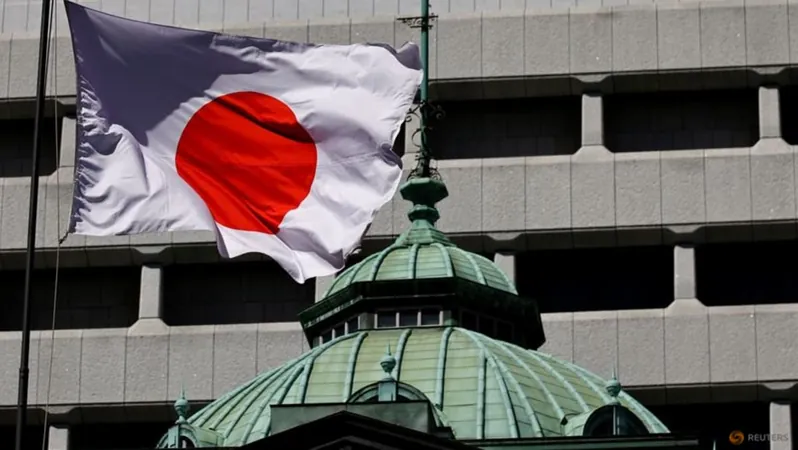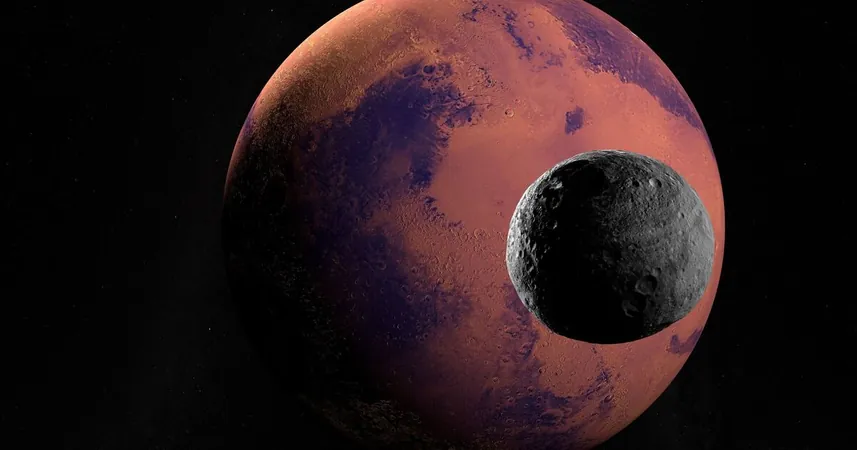
BOJ Policymakers Split on Interest Rate Hike Amid Inflation and U.S. Tariff Concerns
2025-03-28
Author: John Tan
Policymakers Divided on Timing of Rate Hikes
The recent Bank of Japan (BOJ) meeting has revealed a stark divide among policymakers regarding the timing of potential interest rate hikes. According to a summary of discussions from their March meeting, some members expressed concern over rising domestic inflation while others pointed to the uncertainties posed by U.S. tariff policies.
Impact of U.S. Tariffs
The backdrop of this internal conflict is the ongoing impact of U.S. President Donald Trump's tariff increases, which have added complexity to the BOJ's strategy for addressing persistent inflation that has lingered above the central bank's 2% target for nearly three years.
Concerns Over Price Pressures
Hawkish members of the board have raised alarms about escalating price pressures, particularly citing the recent spike in food costs as a potential long-term driver of inflation. One member emphasized that "the recent surge in food costs could have a significant impact on underlying inflation," highlighting the critical nature of these discussions.
Wage Growth as a Positive Indicator
Conversely, several board members pointed to substantial wage hikes negotiated by major companies during annual union talks as a sign that the conditions for rate increases could soon be favorable. "Japan's economy is nearing our price target primarily due to domestic inflationary pressures," noted one member, suggesting that the central bank might need to adjust its communication strategy regarding monetary policy as it moves into fiscal 2025.
Risks from U.S. Economic Developments
In stark contrast, other board members voiced concerns over the elevated risks to Japan's economy stemming from U.S. tariffs. "Recent developments in the United States have rapidly increased downside risks, and any tariff-related issues could negatively affect the Japanese economy," stated another participant in the discussions.
Current BOJ Policy and Economic Context
During the March 18-19 meeting, the BOJ maintained interest rates at 0.5%. Governor Kazuo Ueda highlighted the growing global economic uncertainty during a press briefing, expressing caution about the potential rise in food prices and stronger-than-anticipated wage growth that might further push inflation.
Inflation Trends
The latest data indicates that core consumer inflation in Tokyo reached 2.4% in March, an increase from the previous month attributed to steady food price rises.
Expert Analysis
Experts like Yusuke Matsuo, a senior market economist at Mizuho Securities, noted that the views among hawks and doves within the BOJ were relatively balanced and indicated no clear timetable for the next interest rate hike. "The tone of Ueda’s news conference suggests a readiness to raise rates, but the timing remains flexible," Matsuo added.
Looking Ahead to Future Meetings
The BOJ is scheduled to meet again for a rate review on April 30-May 1, where it will release updated quarterly growth and inflation forecasts—critical indicators for determining the direction of future rate adjustments.
External Economic Pressures
With economic pressures mounting, especially from the anticipated impact of a 25% auto tariff announced by Trump, the BOJ members are deliberating the best course of action. While raising concerns about external factors, some members assert that the bank isn't obliged to maintain a cautious monetary policy in the face of uncertainties; decisive action may still be warranted.
Analyst Predictions
A recent Reuters poll suggests that analysts anticipate the BOJ might implement its next interest rate hike in the third quarter of this year, with July being a likely candidate. As these discussions unfold, the BOJ faces challenging dynamics that could shape Japan's economic future. Stay tuned for developments as global economic conditions continue to influence domestic monetary policy!


 Brasil (PT)
Brasil (PT)
 Canada (EN)
Canada (EN)
 Chile (ES)
Chile (ES)
 Česko (CS)
Česko (CS)
 대한민국 (KO)
대한민국 (KO)
 España (ES)
España (ES)
 France (FR)
France (FR)
 Hong Kong (EN)
Hong Kong (EN)
 Italia (IT)
Italia (IT)
 日本 (JA)
日本 (JA)
 Magyarország (HU)
Magyarország (HU)
 Norge (NO)
Norge (NO)
 Polska (PL)
Polska (PL)
 Schweiz (DE)
Schweiz (DE)
 Singapore (EN)
Singapore (EN)
 Sverige (SV)
Sverige (SV)
 Suomi (FI)
Suomi (FI)
 Türkiye (TR)
Türkiye (TR)
 الإمارات العربية المتحدة (AR)
الإمارات العربية المتحدة (AR)